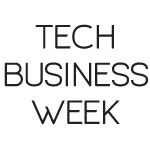R&D – Is it better to be first or best?
In the fast paced world of tech, is it better to be the first to market or is it better to be the be There are two schools of thought. The first, as summed up by Elon Musk’s old study companion and confidant, Christian Eidem, is that: ‘A company not only has to continuously come up with newer and better products but has to do so faster than its competitors’. The contrary view, as proposed by Facebook’s Head of Product Chris Cox is that: ‘Getting there first is not what it’s all about. What matters always is execution. Always.’
So, which of these two opinions are we to believe? They both come with some pedigree attached.
The idea of which is better, speed or quality is one that has been causing some controversy in recent years. The quote from Cox above comes from an article about Facebook founder Mark Zuckerberg by Jose Antonio Vargas in the New Yorker. Cox was speaking in response to the claim that Facebook Questions was simply a rip off of Quora’s idea. Cox was firm in his defence that even though the idea might be similar, Facebook’s version was so superior that it ended the argument. But is this necessarily true?
Facebook is such a behemoth that it can pretty much do whatever it wants. In a similar vein, Yahoo recently commissioned a post called Back to the Future: Innovation is Alive in Search. In it they claimed that they had in fact beaten Google in the hunt for real-time search results. They even hinted that they might launch legal action against Google for breaching their patent or intellectual copyright.
It would certainly seem in these two instances that being the best wins. Simply claiming to be the first is not enough when someone comes along and does it so much better. But as mentioned, these two cases involve two of the largest companies the world has ever known. And they probably don’t necessarily fear the legal action of other developers who claim to have been the first to launch certain products.
Further down the food chain, being first may well carry more credos but it is more than a question of simply being first. As well as being the innovator it is important to make sure that this is well known. Almost every company in the world ‘borrows’ the odd idea from time to time. If you don’t want to get swallowed up by bigger fish, then you need to make sure that your ideas are protected.
There is still some mileage in being the first, as Christian Eidem says. However, you also need to make sure that your product is good enough to get noticed. Get the balance right between speed and quality and it can be genuinely game changing. Especially in the world of tech, where it seems that very often people are working on the same or similar projects at the same time. Breakthroughs need to be the subject of fanfare if they are to be significant.
Think back to the beginning of this century. There were already hundreds of MP3 players on the market. But most people had never heard of them. Then along comes Apple with its iPod and the rest is history. Apple were not the first but they were the best and ended up selling hundreds of millions of them as a result.
Then again, there is definitely something to say about being the first. Everybody knows the name Neil Armstrong. The first man on the moon. It’s an incredible achievement and one that will never be forgotten in human history. Sure, Buzz Aldrin, the second man on the moon is also pretty famous but will his name have the historical longevity? Probably not. And let’s not dwell too long on poor old Michael Collins, stuck in the lunar module and destined to be forgotten, even though he was just as integral to the whole mission.
So, sometimes being first does have its advantages. Then again, the Wright brothers were the first to achieve powered flight and their company was short lived. They never truly made much of an impact on the aviation world after their world first. Other designers and pilots came in, built on what they had done and made real improvements. First is for the record books, but best is what really makes all the difference.
Realistically, true success probably comes from finding the happy medium. Yes, you need to make sure that your product or idea is as good as it possibly can be. There is no point rushing something to market that is not ready. But you also need to be able to strike while the iron is still hot. Spending years testing your product, refining until it is perfect might end up in you missing your moment. Speed is always of the essence in business.
So, what have we learned? Well, we know that success is a combination of quality and timing. Doing something well is essential to its long term success but you need to do it in a timely way. We’ve also learned that if you do have a great idea and you do get it to market, you need to make sure it makes a big splash. In short, marketing matters. Your revolutionary idea will only be attributed to you if enough people know about it. Otherwise you’ll be like all those MP3 player manufacturers who watched Apple swoop in and make billions.
We’ve also learned that you should always be aware of the big fish in the tank. If they like your idea, they might just take it for themselves without so much as a thank you. So, protect yourselves where possible. And remember what Christian Eidem said: a company has to continuously come up with good ideas. It’s an ongoing process. Don’t just sit back on your one good idea and hope it sticks, keep coming up with more and more – that’s the best way to find success.

